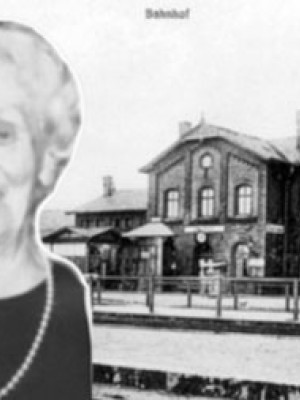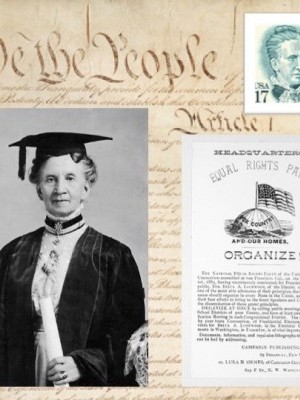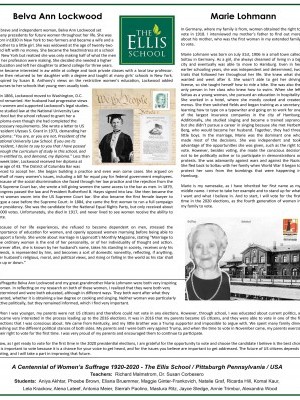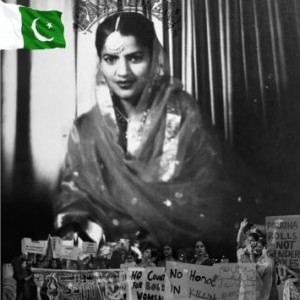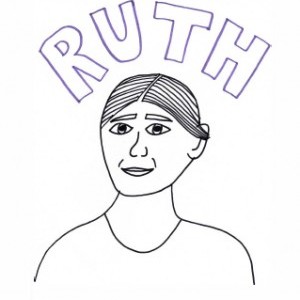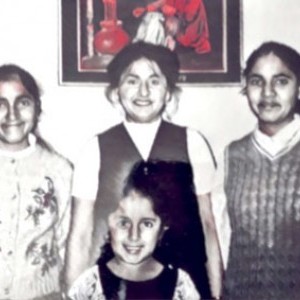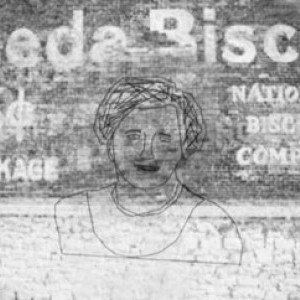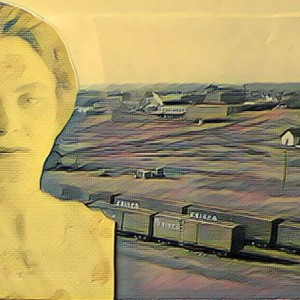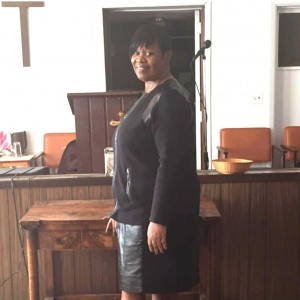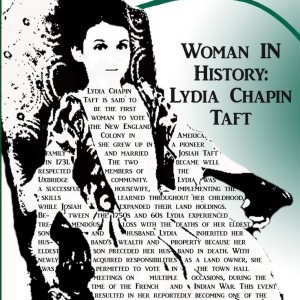Eliana Bruemmer
The Ellis School | Pittsburgh, PA | 11th Grade
Inspirational Family Member
My Great-Grandmother
In Germany, where my family is from, women obtained the right to vote in 1918. I interviewed my mother’s father to find out more about his mother, who was the first woman in my extended family to vote.
Marie Lohmann was born on July 31st, 1906, in a small town called Soltau in Germany. As a girl, she always dreamed of living in a big city and eventually was able to move to Hamburg. Even in her earlier schooling years, she was independent and determined, two traits that followed her throughout her life. She knew what she wanted and went after it. She wasn’t able to get her driving license, so she taught herself how to ride a bike. She was also the only person in her class who knew how to swim. When she left Soltau as a young woman, she pursued an education in hospitality. She worked in a hotel, where she mostly cooked and created menus. She then switched fields and began training as a secretary, learning how to type on a typewriter and going on to work for one of the largest insurance companies in the city of Hamburg. Additionally, she studied singing and became a trained soprano, but she didn’t pursue a career in singing because she met Herbert Berg, who would become her husband. Together, they had three little boys. In the marriage, Marie was the dominant one who made most of the decisions. She was independent and took advantage of the opportunities she was given, such as the right to vote. However, besides voting, she made the conscious decision not to be politically active or to participate in demonstrations or protests. She was adamantly against wars and against the Nazis. She fled back to Soltau with her family when World War II began, to protect her sons from the bombings that were happening in Hamburg.
Marie is my namesake, as I have inherited her first name as my middle name. I strive to take her example and to stand up for what I want and what I believe in. And to start, I will vote for the first time in the 2020 elections, as the fourth generaNon of women in my family to vote.
Historical Figure I Admire
Belva Ann Lockwood
A brave and independent woman, Belva Ann Lockwood set many precedents for future women throughout her life. She was born in 1830 in New York to two farmers and became a wife and a mother to a little girl. She was widowed at the age of twenty-two and left with no money. She became the headmistress at a school in New York but realized that she was only making half of what the men in her profession were making. She decided she needed a higher education and left her daughter to attend college for three years. She became interested in law while at college and took private classes with a local law professor. She then returned to her daughter with a degree and taught at many girls’ schools in New York. Inspired by Susan B. Anthony’s views on the restrictive women’s education, Lockwood added courses to her schools that young men usually took.
In 1866, Lockwood moved to Washington, D.C. and remarried. Her husband had progressive views on women and supported Lockwood’s legal studies. She studied law at the National University Law School but the school refused to grant her a diploma even though she had completed the necessary requirements. She wrote a letter to US President Ulysses S. Grant in 1973, demanding her diploma: “You are, or you are not, President of the National University Law School. If you are its President, I desire to say to you that I have passed through the curriculum of study in this school, and am entitled to, and demand, my diploma.”1 Less than a week later, Lockwood received her diploma at the age of 43. The District of Columbia Bar was forced to accept her. She began building a practice and even won some cases. She argued on behalf of many women’s issues, including a bill for equal pay for federal government employees. Because of the social discrimination she faced through her law practice and the rejection from the US Supreme Court bar, she wrote a bill giving women the same access to the bar as men. In 1879, Congress passed the law and President Rutherford B. Hayes signed it into law. She then became the first woman sworn into the US Supreme Court bar. She also became the first female lawyer to argue a case before the Supreme Court. In 1884, she came the first woman to run a full campaign for the presidency. She was the candidate for the National Equal Rights Party, but only received about 4,000 votes. Unfortunately, she died in 1917, and never lived to see women receive the ability to vote.
Because of her life experiences, she refused to become dependent on men, stressed the importance of education for women, and openly opposed women marrying before being able to support a family. She wrote about marriage in Lippincott’s Monthly Magazine, stating “Marriage to the ordinary woman is the end of her personality, or of her individuality of thought and action. Forever after, she is known by her husband’s name, takes his standing in society, receives only his friends, is represented by him, and becomes a sort of domestic nonentity, reflecting, if anything, her husband’s religious, moral, and political views, and rising or falling in the world as his star shall go up or down.”2
SOURCES +
What the Project Means to Me
Suffragette Belva Ann Lockwood and my great-grandmother Marie Lohmann were both very inspiring women. In reflecting on my research on both of these women, I realized that they were both very determined and were both educated, although in different ways. They both went after what they wanted, whether it is obtaining a law degree or cooking and singing. Neither woman was particularly active politically, but they remained informed, which I find very important. When I was younger, my parents were not US citizens and therefore could not vote in any elections. However, through school, I was educated about current politics, and became very interested in the process leading up to the 2016 elections. It was in 2016 that my parents became US citizens, and they were able to vote in one of the first elections that I was conscious about. We came from Kentucky, and my little brother was a Trump supporter and impossible to argue with. We spent many family dinners hashing out the different political stances of both sides. My parents and I were both very against Trump, and when the time to vote in November came, my parents exercised their right to vote for the first time. I was very proud of my parents and encouraged them to continue to participate. Now, as I get ready to vote for the first time in the 2020 presidential elections, I am grateful for the opportunity to vote and choose the candidate I believe is the best choice. It is important to vote because it is a chance for your voice to get heard, and for the issues you believe are important to get addressed. The future of US citizens depends on voting, and I will take a part in improving that future.
Explore the Archive
More From This Class
Click on the thumbnails below to view each student's work.Deadline Extended
There's still time to join Women Leading the Way.
Become a part of our storytelling archive. Enroll your class today.
Join the Project

